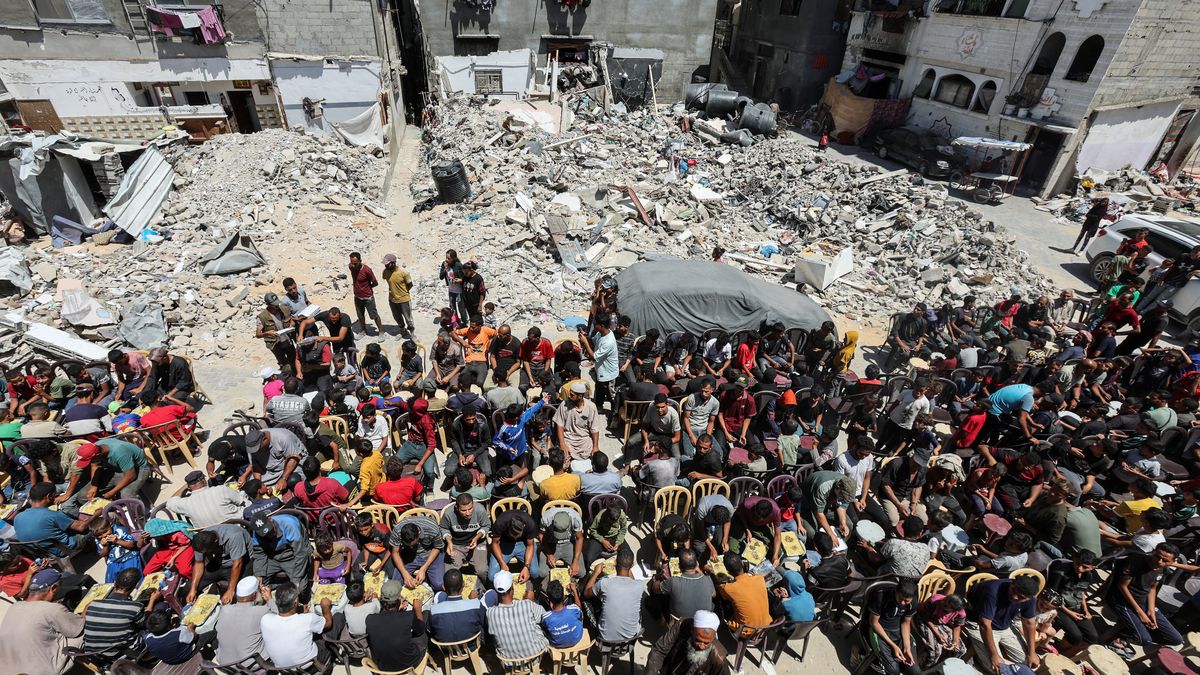In the middle of the treatment in Deputies of the call “Draft Law of Bases and Starting Points for the Freedom of Argentines”, members of the Board of Directors of the Argentine Wine Corporation (COVIAR) They met in Buenos Aires with national legislators from the wine provinces, to discuss and express their concern regarding the possible application of export duties to the sector and its negative impact on the entire Argentine wine chain.
This is article 205, through which it is proposed to establish in a 8% export duty rate “for all merchandise corresponding to the wine complex and lemon essential oil.” Coviar highlights that “wine growing is an activity with high added value, which is a country brand for Argentina, generating foreign currency, employment and roots in 18 provinces.”
In this sense, the objective of the meeting was to inform the legislators of the different political forces about “the negative impact that these export duties would have on the entire exportable supply of Argentina, and to ask them not to support this article and maintain as until now to winegrowing without having to pay export duties”.
The meeting, which had a wide and important call, was attended by COVIAR, its president Mario Gonzalez; the vice president José Alberto Zuccardi; José Molina, president of the Chamber of Viticultural Producers of San Juan and member of the Board of Directors and general manager Carlos Fiochetta. On the part of the legislators, representatives from the provinces of Mendoza, San Juan, Catamarca, La Rioja Neuquén, Córdoba, Formosa, La Pampa and Tierra del Fuego. Among them: Juan Carlos Pagotto (LLA La Rioja); Fernando Rejal (UP La Rioja); Luis Picat (UCR Córdoba); Anabel Fernandez Sagasti (UP Mendoza); Adolfo Bermejo (UP Mendoza); Pamela Verasay and Lisandro Nieri (UCR Mendoza); Mariana Juri (Mendoza changes); Pablo Cervi (UCR Neuquén); Oscar Parrilli (FdT Neuquén); Celeste Gimenez Navarro (FdT San Juan); Jorge Chica (UxP San Juan); Walberto Allende (PJ San Juan); Daniel Bensusan (PJ La Pampa); Cristina Lopez (PJ Tierra del Fuego); Guillermo Andrada (UxP Catamarca); Jose Mayans (FdT Formosa). Senators and former governors were also present. Sergio Casas (The Rioja); Lucia Corpacci (Catamarca); and Sergio Uñac (San Juan).
“The application of export duties to the sector would directly affect the entire wine chain, mainly the primary sector, threatening job creation, external competitiveness and the attraction of investments in an industry present today in 18 provinces,” he said. Mario Gonzalezpresident of COVIAR. And he added: “We are the industry that generates the greatest added value per hectare in production and the one that generates the greatest genuine labor per hectare for the entire country, among other foundations that lead us to be convinced that winegrowing should have 0%. of exploitation rights. “We have everything to grow, all the qualities to produce and be able to export to the world.”
Juan Carlos Pagotto, senator for La Rioja from LLA, maintained that there are market imbalances of which the State is no stranger: “The tax pressure that this country has is terrible and it is one of the problems that we must attack above all else. Argentina, which has a strong wine industry and which could have been much better, has not had the necessary comparative advantages and when there were funds to create them, they were not created. I hope that all Argentines can work, create and get ahead, so you can count on my commitment to work on this issue.”
For his part, the deputy for Córdoba of the UCR, Luis Picat, noted: “We are against any distortive tax and increase in new taxes on the products included in the article presented by the Executive, which takes us out of the market. We believe that the collateral damage has not been seen and that the intention to place taxes goes against what they seem to seek, which is to open markets, export more and bring more dollars to Argentina.”
Anabel Fernandez Sagasti, senator for Mendoza of UP, reaffirmed for her part the commitment to work intensely and generate consensus to modify this article and added: “Common sense tells us that regional economies do not have to be recorded. Those of us who are from wine-producing provinces know what this means, since for us it is basically defending our culture.”
Finally, senator and former governor of San JuanSergio Uñac, he claimed: “It is very important that we listen to the sector and educate ourselves about the current reality. Therefore, although much emphasis has been placed on export rights, which we want to defend, we believe that we must also work on import rights. We are committed to generating the right balance to protect the producer and the industrialist in every sense.”
How does the export right specifically affect?
According to COVIAR, if the values are taken as of December 2023, the average price per liter of exported bottled wine is 4.20 FOB dollars; The exchange rate that the exporter accesses is approximately $836 pesos per dollar (corresponding to 80% of the MULC and 20% of the MEP dollar). Thus, the price of wine in pesos for the exporter is $3,510.
Now, wine, as an input, represents 11% of the final value of an exported bottle on average; and the remainder is made up of labor, operating surplus, taxes, capsule, stopper, label, bottle, box, among other inputs, so the proposed 8% export duty on wine (which is currently 0%) would represent 71.3% of what is specifically charged per liter of exported wine, according to data collected by the Argentine Wine Observatory.
Paying export duties of 8% for winegrowing implies a loss of competitiveness and markets, a drop in sales abroad, especially SMEs that will stop exporting, and greater production surpluses that will be directed to the domestic market in the face of the impossibility of being able to sell them. in external markets, generating a greater supply that will put downward pressure on prices, affecting grape producers and SMEs.
Source: Ambito




